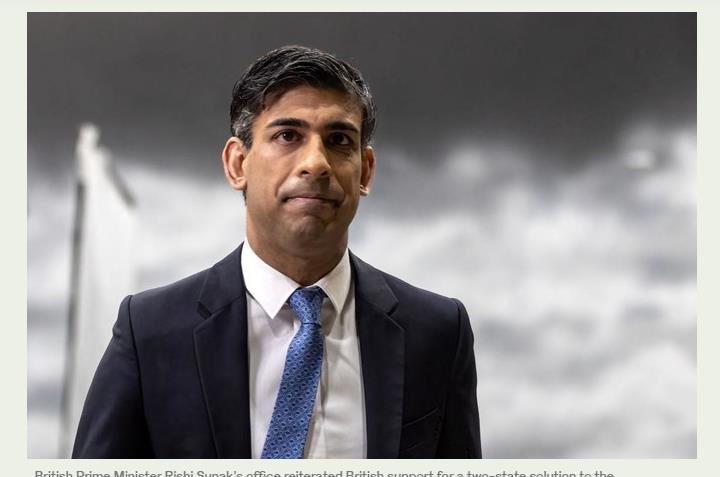
Washington’s decision to go against the world community by vetoing last week’s UN Security Council resolution recommending the granting of full UN membership to Palestine exposed America’s hypocrisy. American officials have, especially since the Gaza violence erupted, argued that the establishment of a Palestinian state alongside Israel is the most important long-term solution for the Palestinian conflict. By going against 12 members of the council, including three permanent members and all EU members, the US has weakened its only argument and showed its bias.
In defending this veto, the US representative made little effort to explain the hypocrisy. Nor did he use the occasion to restate America’s commitment to the Palestinians’ right of self-determination. This term, which is crucial in any discussion of Palestinian statehood, was not mentioned at all and neither were the words “justice” or “freedom.” Instead, the most-repeated key word used by the US representative was “normalization.” The American official, whose government is in deep negotiations to convince Saudi Arabia to normalize relations with Israel, used this word five times — the same as the hugely important “peace.”
In an attempt to correct the situation, the US State Department’s explanation exposed a more severe problem. Spokesperson Vedant Patel repeatedly insisted that the US believes that “the most expeditious path toward statehood for the Palestinian people is through direct negotiations.” Journalists attending Thursday’s briefing scoffed at the use of the term “expeditious,” arguing correctly that it has already been more than 30 years since the Oslo I Accord was signed in Washington.
The last direct talks between Israelis and Palestinians occurred two presidents ago, in April 2014, during the Obama administration. At the time, Secretary of State John Kerry put the blame squarely on the Israeli side by saying that its decision to increase settlements and its refusal to release the last tranche of older Palestine Liberation Organization combatants, which had already been agreed to, led to the collapse of the talks.
The Gaza war has produced an even more egregious Israeli position regarding the idea of direct talks. Israeli Prime Minister Benjamin Netanyahu, who in the past had been caught on a hot mic telling settlers that he has worked against the Oslo Accords, has come out publicly since Oct. 7 and said that he has also worked against the idea of Palestinian statehood.
So, we are left with a useless US mechanism, which its own ally has refused to engage with and that aims to lead to a Palestinian state that the prime minister of Israel has boasted of working against.
Naturally, to cover its tracks, Washington has produced a weak argument against immediate statehood. The calls made by the US president for the revitalization of the Palestinian government, which has been a demand of the Palestinians for years, has been partly adopted by President Mahmoud Abbas, who last month swore into office a new technocratic government. The Mohammed Mustafa-led administration is working on finalizing various reform plans, leading to a promise of legislative and presidential elections. Abbas has also issued a decree appointing a new Central Elections Commission. The nine-person commission (made up of two women and seven men with an average age of 74) is headed by former Palestinian Prime Minister Rami Hamdallah.
Washington’s excuses and justifications are aimed at camouflaging an internal American problem. Laws passed during the 1990s mean that, if Palestine is recognized by the UN as a full member state (outside of negotiations), then all US funding to the organization and its affiliates would be stopped. This unusual situation, which deprives the executive branch of its foreign policy tools, has never been challenged or amended, even by granting the possibility of a presidential waiver if it is deemed to be in the national interest.
The US under President Dwight Eisenhower was the first to recognize the nascent state of Israel in May 1948, long before it had accomplished the basic requirements of statehood, as delineated in Article IV of the UN Charter. The US recognition happened a year before the UN conditionally provided full membership to Israel. Now, America is opposed to any premature recognition of Palestine, even though it is today much more qualified for statehood than the Zionist founders of Israel were in 1948.
If the US wants to be respected as the leader of the free world, the very minimum it needs to do is recognize Palestine on the borders of June 4, 1967, and encourage elected Palestinians and Israelis to negotiate relations between themselves.
America will continue to be isolated and its words about supporting the two-state solution will sound hollow to all.
Daoud Kuttab
The struggle of Palestinians for statehood will continue regardless of the American veto on their inalienable right to self-determination. The 140 UN member states that have already recognized Palestine will no doubt be joined by others in the coming months, in part due to last week’s vote at the UNSC. America will thus continue to be isolated and its words about supporting the two-state solution will sound hollow to all.
If the US fails to do so, it will only increase frustration, anger and hatred. Palestinian leaders have regularly called on the international community to provide Palestinians with a political horizon. The absence of a clear path to freedom adds to the anger and removes the most important ingredient for Palestinians: hope. Without hope for a better future, life becomes meaningless and the taking of one life in a resistance attack becomes much more prevalent.
That being the case, we have to admit that the absence of hope for Palestinians was the most important motivation for the Oct. 7 attack on Israel. The US recognizing Palestinian statehood is not a panacea that will solve all problems, but it would give a kernel of hope to Palestinians, which can go a long way toward bringing about peace and tranquility.
Daoud Kuttab is an award-winning Palestinian journalist and a director of Community Media Network. X: @daoudkuttab
Disclaimer: Views expressed by writers in this section are their own and do not necessarily reflect Arab News" point of view











